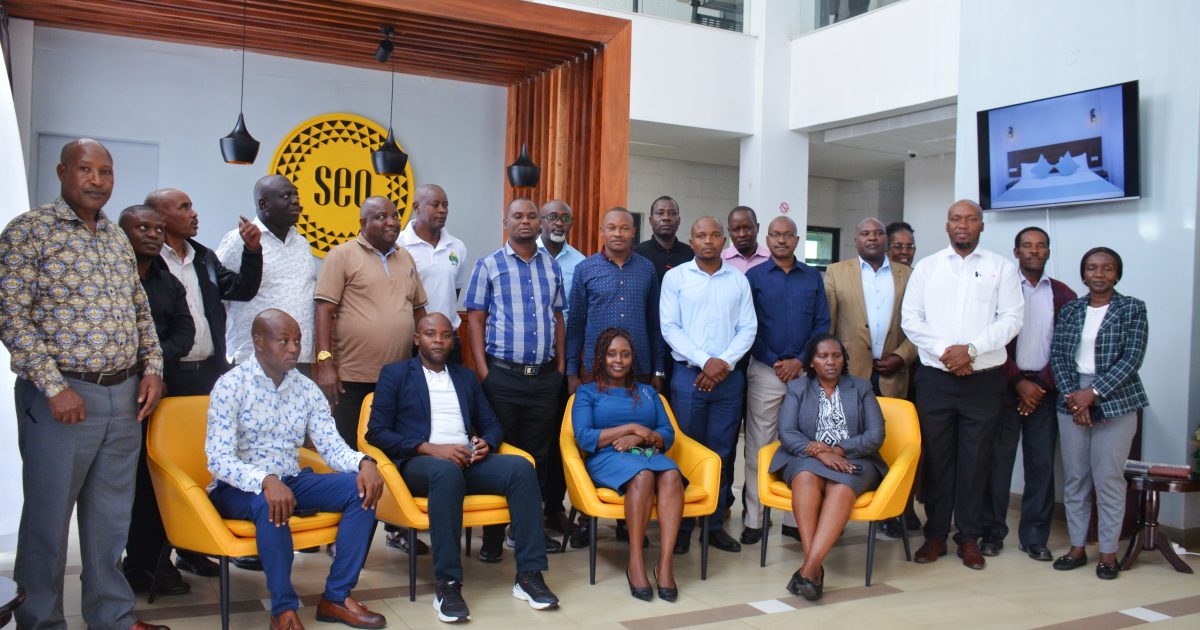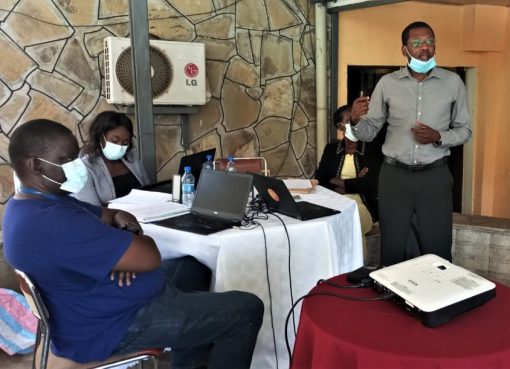The Ministry of Agriculture and Livestock Development, through the State Department for Livestock Development is implementing project DRIVE, which is De-Risking, Inclusion and Value Enhancement (DRIVE) project for the pastoral economies.
The project, which is expected to benefit 125,000 pastoral households, is through a partnership with private sectors such as ZEP-RE insurance and Kenya Development Corporation (KDC).
DRIVE is a regional project implemented in Kenya to enhance access to financial services to livestock farmers for drought risk mitigation, including them in the value chain, facilitating livestock traders in horn of Africa and also ensuring inclusion of marginalised and vulnerable groups such as women in the sector.
In a 4 days’ workshop at Seo Hotel in Machakos, organized by the State Department for Livestock Development, representatives from 9 Counties were sensitised on the DRIVE development project in order to understand the financial products of the project.
Drive is being implemented in 21 Arid and Semi-Arid Lands (ASALs) counties, and nine CECS in charge of Agriculture from Taita Taveta, Kilifi, Kwale, Meru, Tharaka Nithi, Baringo, West pokot, Makueni and Kitui were sensitised today in a workshop at a Machakos hotel.
Kitui CEC Dr Stephen Kimwele who is in charge of Agriculture and livestock, while speaking during the workshop, said that the objective of DRIVE is to understand the financial products offered by the project which includes Insurance, savings, incentive and digital platforms in financial transactions.
Dr Kimwele who was speaking on behalf of the other CECs added that they are going to sensitize their counties on the upcoming project to ensure that livestock farmers will be able to be insured against the ravaging effects of climate.
“We have agreed with fellow CECs to do serious sensitisation and publicity to farmers as it is a good project since it comes with the aspect of insurance, something that the farmers are lacking yet they need to be insured,” said Kimwele.
He pointed out that it is also a good way where the youth and the women can access credit to invest and pay back slowly at a friendly interest rate.
For sustainability and ownership pastoralists are required to contribute 20 percent of the total premium and DRIVE project 80 percent.
The DRIVE project is also a demonstration of the government’s effort to build resilience and increase income of pastoralists thus reducing their vulnerability to poverty and expenditures acquired during harsh climate.
Baringo County Executive Committee member for Agriculture and livestock Risper Chepkonga hailed the project noting that the insurance will help livestock farmers get pasture and water that the livestock need.
“We are excited with this project because farmers will be able to take their livestock to the market when they are alive,” said CEC Chepkonga.
Some of the expected project outcomes are increased drought resilience of the productive pastoral system segregated per county, stable market and prices for livestock produced under productive pastoral systems, increased access to formal financial services, increased private sector investment in livestock value chain and reduction of conflicts and enhanced cross border trade.
By Anne Kangero




